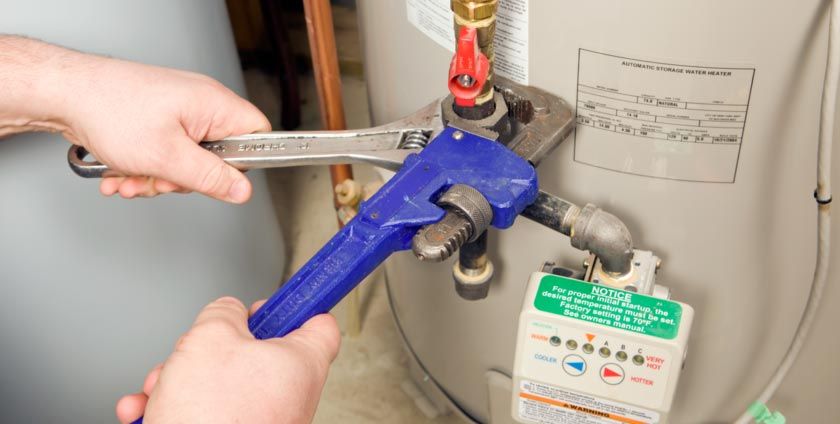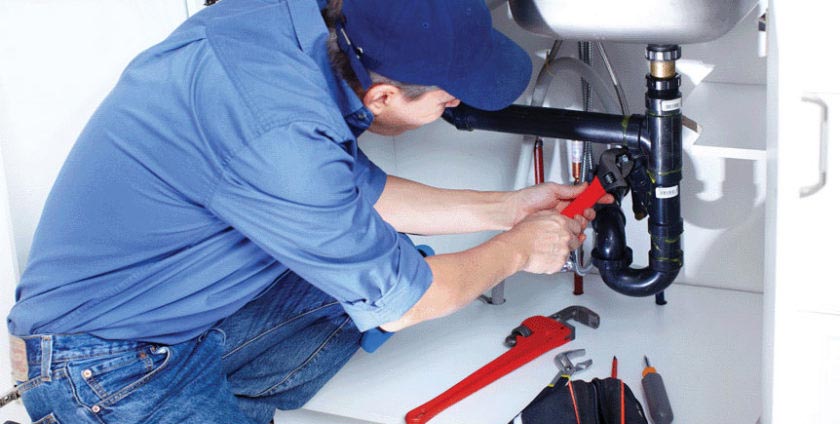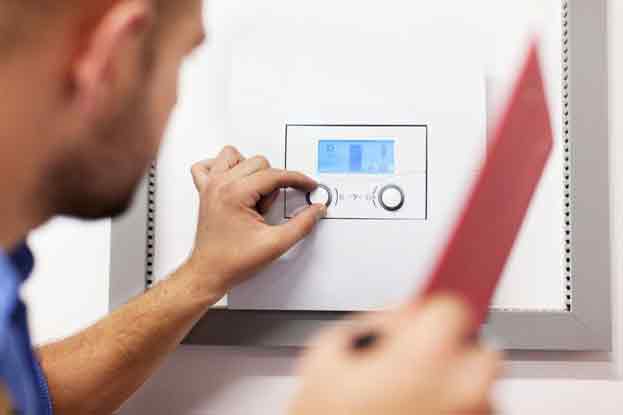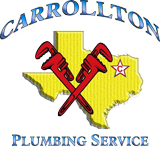OUR LATEST BLOG POSTS

Experienced, professional plumbers can usually troubleshoot any plumbing problem. They can easily deal with burst pipes and clogged drains. Many plumbing problems, however, can be avoided if people knew certain basic things. The following are things that plumbers wish you knew. Avoid getting grease and cooking oil down the drain Do you dump cooking pots, serving dishes, plates, and other eating utensils on the kitchen sink? If you do, you are likely to allow grease and cooking oil to get down the drain. Fat and oil tend to set and thicken when they cool and promote clogged drains. Dispose of used grease and cooking oil by pouring them into an empty disposable container like a milk carton or a tin can and freeze. On garbage day, you can put the container with its contents out with the other kitchen garbage. Do not abuse your garbage disposal system by dumping all types of food scraps into it A garbage disposal system can only break down so much trash. It cannot adequately break down certain items like potato and fruit peels, celery, poultry skin and other similar scraps. It is better to dispose of food scraps by dumping them into the trash can. Chemicals are not always the appropriate solution to a clogged drain. A quick solution is not always the right one. Many people think that all they have to do to address a clogged drain is to pour strong chemicals down the drain. Many chemicals may dissolve whatever is clogging your drain. However, some chemicals may be so strong that that they may eat away at your underground pipes and shorten their lives. Do not disregard a plumbing problem, no matter how small Many people do not pay enough attention to their plumbing fixtures. Plumbers, however, strongly recommend that you attend to a problem as soon as possible. If you ignore a plumbing problem because you think it is not worth your attention, you may soon have a bigger and more expensive problem in your hand. A slow dripping faucet may simply need a relatively cheap seal repair. If you do not address the problem immediately, however, you may have to deal with a damaged faucet that needs to be replaced prematurely. Pay attention to your water heater Do not forget to do the required regular maintenance on your water heater. Do not ignore your water heater simply because it is tucked away in your closet or basement. You need to flush the tank annually. You need to check the anode to make sure that it is free from oxidation and rust. If you want your heater to perform efficiently, you need to take these simple measures to lengthen its life. If you fail to do so, you may have to spend a lot of money to replace it. Accept your limitations Do not try to make plumbing repairs yourself if you are unsure of your skills. A plumbing problem may start out small. When not handled with sufficient proficiency, however, it can turn into a costly labor- intensive problem. Know how to shut off the water if necessary You may not have sufficient skills to address plumbing issues. At the very least, though, you should know how to shut off the water when a problem arises. Make sure that you know where your shut-off valves are located. Make sure that they actually work. This basic knowledge will help you contain water damage in your home from becoming costly and irreversible during an emergency. The best way to address a difficult plumbing problem is to get in touch with experienced professional plumbers. Visit https://www.carrolltonplumbingservice.com to find out more about routine maintenance and how to address plumbing emergencies. The post DIY Home Plumbing Advice appeared first on Carrollton Plumbing Service .

How to pick a plumber There are many types of plumbing problems. Some are pretty straightforward like a drain that is clogged or a faucet that leaks. Others may be more intricate like replacing a pipe or mounting a sink. Simple or complex, however, a plumbing problem can be stressful. Fortunately, you can always hire a skilled plumber to address the problem. Before hiring a plumber, however, it is worth your while to consider several essential things to make sure that you are putting your plumbing system in capable hands. License Does the plumbing service have the appropriate licensing, certification, and insurance to practice in your state? A license confirms a plumber’s qualifications. It also assures you that your interests remain protected in the event that something goes awry with the job. Experience How many years have they been in service? Experience is important. It means that the plumber can correctly assess what needs to be done and do it fast and efficiently. An inexperienced plumber, even if he is licensed, is not likely to do the same job as fast and as thoroughly as an experienced plumber does. Cost How much will it cost you to hire their services? This may be a delicate consideration. Plumbers with solid experience and commendable reputation may charge higher than their less proficient counterpart. However, make sure that the fees are fair and competitive before you engage a plumber's services. A professional plumber will visit your home, assess the problem, and make a free estimate of how much it will cost to fix it. Make sure to ask whether the estimate includes labor, materials, and other contingencies. Are the charges based on a flat rate and are therefore not going to increase later if additional labor is required? Or are they based on an hourly rate which may prove costly if the task is likely to run far longer than first estimated? Is after-work cleanup incorporated in the price quotation? Some plumbing services ask extra pay for cleaning up when they finish the job. Confirm this beforehand so you are able to make a well-considered decision. Warranty Is the plumber ready to stand behind his work? If he is, he will readily offer a guarantee on the work that he does. Can he provide a written agreement covering guarantees? Will he redo the job if something goes wrong or should problems arise? An agreement that covers this possibility will ensure that you will not be charged for further work should there be complications. Insurance Ask whether the employees of the plumbing service you are considering have liability insurance and workers compensation. The insurance assures you that should a plumber incur injury while working in your home, you will not be held accountable for medical expenses and other related bills. Should there be damages incurred in your home in the process of addressing the plumbing problem, the insurance will cover the cost of related repairs. References It is prudent to ask for references. A reputable plumber will readily give you references to vouch for his work. Hiring an excellent plumber may take some effort. If you know what areas to consider, however, you have better chances for picking a qualified, reliable, and efficient plumber. Visit to https://www.carrolltonplumbingservice.com if you want to find out more about plumbing services. The post Things To Consider Before Hiring A Plumbing Contractor? appeared first on Carrollton Plumbing Service .

This step-by-step guide to draining a water heater will prepare the adept homeowner to drain their own water heater. The reason for draining a water heater is to remove additional sediment. This sediment accumulates as the water is being used in a variety of ways. If this sediment is not removed it can slow the efficiency of the water heater, force it to work harder, and can clog the drain . By removing it annually you increase the life of the water heater. This is a process that is cheap, will take less than a day, and does not required a lot of skills to accomplish. Materials Needed Hose Bucket (optional) Step 1.Gather the Equipment There are only two pieces of equipment to consider in this job. The essential requirement is a hose. If you do not have a drain or sink handy to the water heater , you will also need a bucket to place the dirty water somewhere. Step 2. Turn off the Water There should be a water heater valve on the top of the water heater that connects to the cold water source. This needs to be turned off so that no additional water enters the heater. Step 3. Turn off the Water Heater This step will look different depending on if you have a gas or electric water heater . For electric water heaters , the turn off switch is in the circuit breaker. It is essential to make sure the electric water heater is turned off for the entirety of the draining because the coils can burn if there are not immersed in water. G as water heater need to have the thermostat turned to the pilot setting. You will need to wait 24 hours after turning off the water heather prior to draining the water. Step 4. Connecting the Hose to the Drain Valve Somewhere near the bottom of the tank there should be a drain valve . You will need to take your hose and connect it to the valve. Make sure that this is tightly secured so that there are no leaks. Step 5. Release Water Pressure To help the water drain faster, you should turn on a spicket directly above the water heater. This will allow the water to flow out faster. Step 6. Open the Drain Valve You are now ready to drain the water from the tank. You will open the valve and allow the water to run out of the tank. Make sure to monitor the drain or the bucket so that no water overflows. Once the water tank is empty, you will perform a couple of cold water flushes in order to ensure that the sediment is completely out of the tank. This step is complete once water runs clear from the tank. Step 7. Close Drain Valve and Refill Tank

Experienced, professional plumbers can usually troubleshoot any plumbing problem. They can easily deal with burst pipes and clogged drains. Many plumbing problems, however, can be avoided if people knew certain basic things. The following are things that plumbers wish you knew. Avoid getting grease and cooking oil down the drain Do you dump cooking pots, serving dishes, plates, and other eating utensils on the kitchen sink? If you do, you are likely to allow grease and cooking oil to get down the drain. Fat and oil tend to set and thicken when they cool and promote clogged drains. Dispose of used grease and cooking oil by pouring them into an empty disposable container like a milk carton or a tin can and freeze. On garbage day, you can put the container with its contents out with the other kitchen garbage. Do not abuse your garbage disposal system by dumping all types of food scraps into it A garbage disposal system can only break down so much trash. It cannot adequately break down certain items like potato and fruit peels, celery, poultry skin and other similar scraps. It is better to dispose of food scraps by dumping them into the trash can. Chemicals are not always the appropriate solution to a clogged drain. A quick solution is not always the right one. Many people think that all they have to do to address a clogged drain is to pour strong chemicals down the drain. Many chemicals may dissolve whatever is clogging your drain. However, some chemicals may be so strong that that they may eat away at your underground pipes and shorten their lives. Do not disregard a plumbing problem, no matter how small Many people do not pay enough attention to their plumbing fixtures. Plumbers, however, strongly recommend that you attend to a problem as soon as possible. If you ignore a plumbing problem because you think it is not worth your attention, you may soon have a bigger and more expensive problem in your hand. A slow dripping faucet may simply need a relatively cheap seal repair. If you do not address the problem immediately, however, you may have to deal with a damaged faucet that needs to be replaced prematurely. Pay attention to your water heater Do not forget to do the required regular maintenance on your water heater. Do not ignore your water heater simply because it is tucked away in your closet or basement. You need to flush the tank annually. You need to check the anode to make sure that it is free from oxidation and rust. If you want your heater to perform efficiently, you need to take these simple measures to lengthen its life. If you fail to do so, you may have to spend a lot of money to replace it. Accept your limitations Do not try to make plumbing repairs yourself if you are unsure of your skills. A plumbing problem may start out small. When not handled with sufficient proficiency, however, it can turn into a costly labor- intensive problem. Know how to shut off the water if necessary You may not have sufficient skills to address plumbing issues. At the very least, though, you should know how to shut off the water when a problem arises. Make sure that you know where your shut-off valves are located. Make sure that they actually work. This basic knowledge will help you contain water damage in your home from becoming costly and irreversible during an emergency. The best way to address a difficult plumbing problem is to get in touch with experienced professional plumbers. Visit https://www.carrolltonplumbingservice.com to find out more about routine maintenance and how to address plumbing emergencies. The post DIY Home Plumbing Advice appeared first on Carrollton Plumbing Service .

How to pick a plumber There are many types of plumbing problems. Some are pretty straightforward like a drain that is clogged or a faucet that leaks. Others may be more intricate like replacing a pipe or mounting a sink. Simple or complex, however, a plumbing problem can be stressful. Fortunately, you can always hire a skilled plumber to address the problem. Before hiring a plumber, however, it is worth your while to consider several essential things to make sure that you are putting your plumbing system in capable hands. License Does the plumbing service have the appropriate licensing, certification, and insurance to practice in your state? A license confirms a plumber’s qualifications. It also assures you that your interests remain protected in the event that something goes awry with the job. Experience How many years have they been in service? Experience is important. It means that the plumber can correctly assess what needs to be done and do it fast and efficiently. An inexperienced plumber, even if he is licensed, is not likely to do the same job as fast and as thoroughly as an experienced plumber does. Cost How much will it cost you to hire their services? This may be a delicate consideration. Plumbers with solid experience and commendable reputation may charge higher than their less proficient counterpart. However, make sure that the fees are fair and competitive before you engage a plumber's services. A professional plumber will visit your home, assess the problem, and make a free estimate of how much it will cost to fix it. Make sure to ask whether the estimate includes labor, materials, and other contingencies. Are the charges based on a flat rate and are therefore not going to increase later if additional labor is required? Or are they based on an hourly rate which may prove costly if the task is likely to run far longer than first estimated? Is after-work cleanup incorporated in the price quotation? Some plumbing services ask extra pay for cleaning up when they finish the job. Confirm this beforehand so you are able to make a well-considered decision. Warranty Is the plumber ready to stand behind his work? If he is, he will readily offer a guarantee on the work that he does. Can he provide a written agreement covering guarantees? Will he redo the job if something goes wrong or should problems arise? An agreement that covers this possibility will ensure that you will not be charged for further work should there be complications. Insurance Ask whether the employees of the plumbing service you are considering have liability insurance and workers compensation. The insurance assures you that should a plumber incur injury while working in your home, you will not be held accountable for medical expenses and other related bills. Should there be damages incurred in your home in the process of addressing the plumbing problem, the insurance will cover the cost of related repairs. References It is prudent to ask for references. A reputable plumber will readily give you references to vouch for his work. Hiring an excellent plumber may take some effort. If you know what areas to consider, however, you have better chances for picking a qualified, reliable, and efficient plumber. Visit to https://www.carrolltonplumbingservice.com if you want to find out more about plumbing services. The post Things To Consider Before Hiring A Plumbing Contractor? appeared first on Carrollton Plumbing Service .

This step-by-step guide to draining a water heater will prepare the adept homeowner to drain their own water heater. The reason for draining a water heater is to remove additional sediment. This sediment accumulates as the water is being used in a variety of ways. If this sediment is not removed it can slow the efficiency of the water heater, force it to work harder, and can clog the drain . By removing it annually you increase the life of the water heater. This is a process that is cheap, will take less than a day, and does not required a lot of skills to accomplish. Materials Needed Hose Bucket (optional) Step 1.Gather the Equipment There are only two pieces of equipment to consider in this job. The essential requirement is a hose. If you do not have a drain or sink handy to the water heater , you will also need a bucket to place the dirty water somewhere. Step 2. Turn off the Water There should be a water heater valve on the top of the water heater that connects to the cold water source. This needs to be turned off so that no additional water enters the heater. Step 3. Turn off the Water Heater This step will look different depending on if you have a gas or electric water heater . For electric water heaters , the turn off switch is in the circuit breaker. It is essential to make sure the electric water heater is turned off for the entirety of the draining because the coils can burn if there are not immersed in water. G as water heater need to have the thermostat turned to the pilot setting. You will need to wait 24 hours after turning off the water heather prior to draining the water. Step 4. Connecting the Hose to the Drain Valve Somewhere near the bottom of the tank there should be a drain valve . You will need to take your hose and connect it to the valve. Make sure that this is tightly secured so that there are no leaks. Step 5. Release Water Pressure To help the water drain faster, you should turn on a spicket directly above the water heater. This will allow the water to flow out faster. Step 6. Open the Drain Valve You are now ready to drain the water from the tank. You will open the valve and allow the water to run out of the tank. Make sure to monitor the drain or the bucket so that no water overflows. Once the water tank is empty, you will perform a couple of cold water flushes in order to ensure that the sediment is completely out of the tank. This step is complete once water runs clear from the tank. Step 7. Close Drain Valve and Refill Tank


 972-820-0565
972-820-0565 ken@carrolltonplumbingservice.com
ken@carrolltonplumbingservice.com





